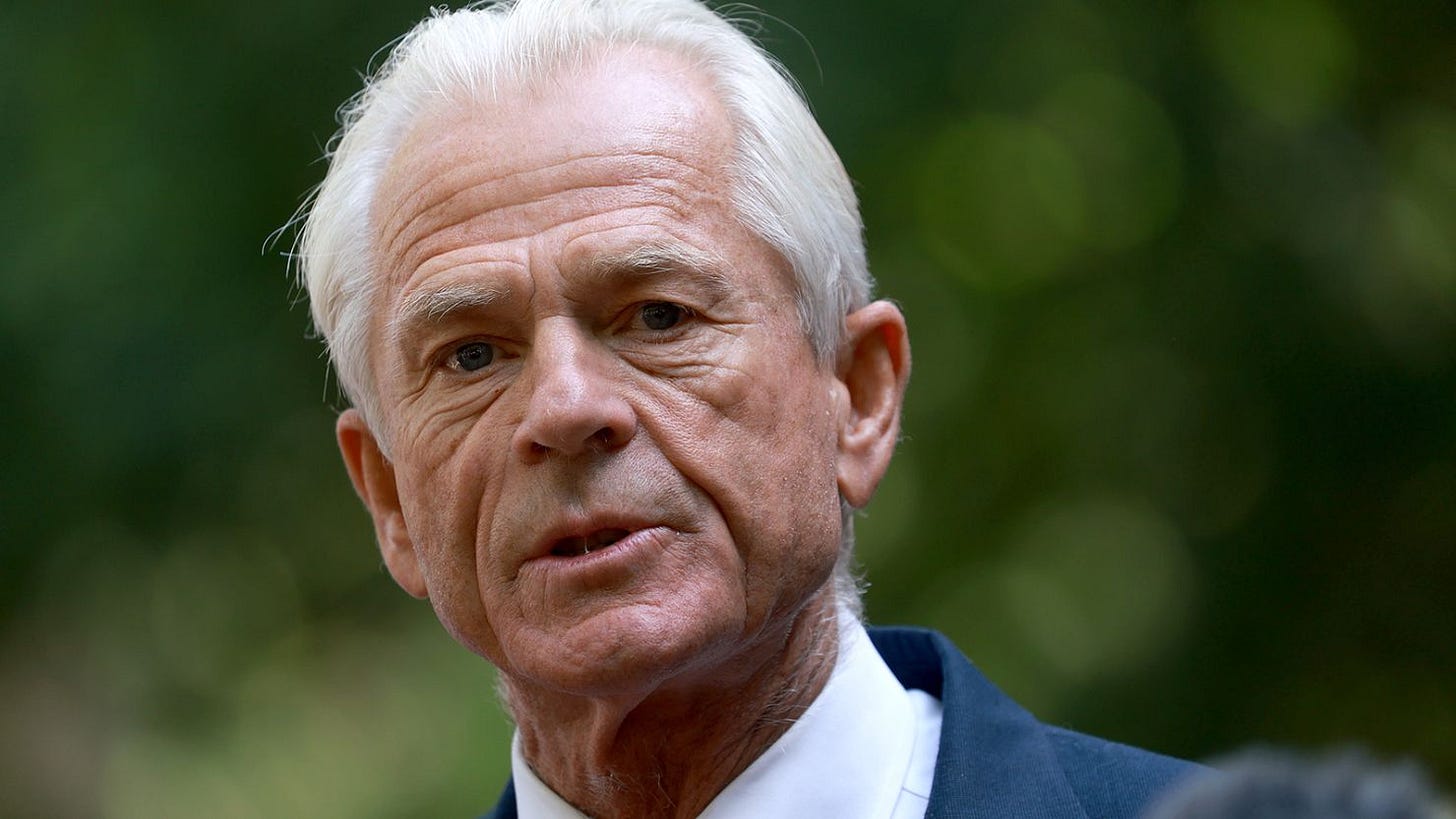The madman behind Trump's trade war: how a fake economist hijacked U.S. policy
He invented a Harvard professor, peddled economic nonsense, and still ended up advising the president. Welcome to the bizarre world of Peter Navarro.
The economist no economist trusts
Peter Navarro should have been a footnote in economic academia, a Harvard-educated professor with no meaningful academic citations, a losing streak in politics, and a knack for writing fringe economic manifestos. Instead, he became one of the most powerful trade voices in the United States, shaping the Trump administration's economic policy and launching a full-blown trade war with China.
And how did he get there?
Well, buckle up, because it involves an imaginary friend named "Ron Vara" (an anagram of "Navarro"), a random Amazon search, and a complete disregard for economic consensus.
A Harvard PhD... with zero street cred
Despite his Ivy League credentials, Navarro is an economic outcast. He has no publications in top-tier journals, has failed in every political race he’s run, and is dismissed by nearly every reputable economist as a crank. His views are so fringe that in a 2012 survey, 95% of economists supported free trade, while Navarro championed tariffs, the same kind that triggered global recessions in the past.
Harvard professor Greg Mankiw compared his ideas to something a freshman would flunk for in Econ 101. Tyler Cowen, Daniel Drezner, and dozens more have publicly shredded his arguments. But Trump didn’t consult them. He took advice from Navarro, a man who believes every dollar of imports reduces GDP by a dollar (spoiler: it doesn’t).
Death by China, and death to logic
Navarro’s infamous book Death by China became a rallying cry for protectionism. He claims Chinese goods are "poisoning Americans" and paints the country as an existential threat. Ironically, Navarro didn’t always hold these views, in 1994, he actually supported free trade, stating that tariffs harm consumers and help only a small number of domestic producers.
So what changed? Perhaps ideology. Perhaps politics. Or maybe it was just convenient to be the loudest anti-China voice in the room when Trump was looking for someone who shared his gut instincts.
Ron Vara: the imaginary economist who started a trade war
Unable to find support from real economists, Navarro invented one. Literally.
He created “Ron Vara,” a fictional Harvard economist who showed up in multiple books and memos, including a crucial White House memo that laid the groundwork for the 2018 U.S.-China trade war.
Navarro later admitted to the fabrication, calling it a “fun device”, but this “device” ended up influencing actual White House policy. It’s like starting a war based on a meme, only worse.
Even his co-author Glenn Hubbard had no idea Ron Vara wasn’t real. UC Irvine, Navarro’s academic home, distanced itself from him entirely. “He no longer represents the university,” they said. Translation: “Please don’t associate us with this guy”.
Musk vs. Navarro
Elon Musk, no stranger to controversy himself, recently dunked on Navarro’s economic understanding, calling Harvard’s economics PhDs “a bad thing” and ridiculing Navarro's trade math. Musk lost billions due to tariffs. His verdict on Navarro? “He ain’t built”.
Trump's maths: more fiction than fact
Navarro’s economic logic didn’t just rely on imaginary people, it relied on imaginary numbers. Instead of using real data on tariffs other countries charged the U.S., Navarro and co. made up a chart using a completely bogus formula: they took trade deficits and divided them by exports.
In other words, they confused a trade gap for a tax rate. It’s like saying your credit card bill is a tax, it’s not, it’s just how much you spent.
How Trump found him (this is real)
And just when you think this story couldn’t get any wilder: Jared Kushner, Trump’s son-in-law, found Navarro by searching Amazon. He saw the title Death by China, liked it, cold-called Navarro, and the rest is history.
This is not how superpowers are supposed to pick their economic brain trust.
Final thought: when fiction becomes policy
Peter Navarro is a case study in how fringe ideas, fiction masquerading as fact, and political opportunism can shape real-world policy with massive consequences. His ideas have cost billions, increased volatility, and isolated America economically, all while economists scream into the void.
But in 21st-century politics, shouting louder often matters more than being right.
And if your critics get too noisy?
Just invent someone new who agrees with you.



Stephen Miran and Nouriel Roubini are the thought leaders of this administration. Not Peter Navarro.
https://www.mercatus.org/macro-musings/stephen-miran-activist-treasury-issuance-and-monetary-policy-implications-second